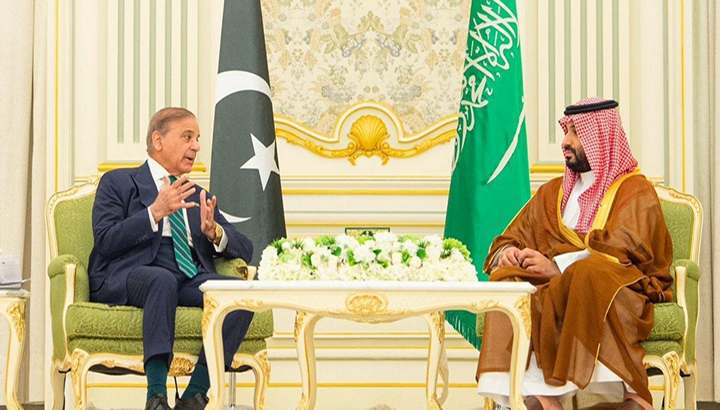
Editor-in-Chief JK News Today and expert in South Asian affairs
The signing of a strategic defence pact between Saudi Arabia and Pakistan on Wednesday has shifted strategic levels in the geopolitics of the region, especially in South Asia with wide implications for India. It offers a reawakening of the Islamic World against Israeli actions, which extended to Qatar last week.
This development , however, is not without implications for India and the overall regional l and global stability . For India, Pakistan’s agreements with powerful countries in the world , has direct bearing on its national security and interests , and in this Jammu and Kashmir is at the core of it . This was evident in the recent months , more precisely since the Pahalgam terror attack of April 22nd and what happened thereafter.
The alarming nature of this agreement signed by Crown Prince Mohammad bin Salman and Pakistani Prime Minister Shehbaz Sharif in Riyadh is that, “it aims to develop aspects of defense cooperation between the two countries and enhance joint deterrence against any aggression.,” This also stipulates that “any aggression against either country is an aggression against both.”
A deep dive into this pact , which is both symbolic and substantive , needs to be done at the earliest . India needs to stidy all the aspects , particularly the strategic challenges it throws for the country..Coming together of Saudi Arabia reckoned as one of the most important countries in the world , and Pakistan a nuclear armed state , is not something to be dismissed as yet another pact between any two countries. It has direct implications.
An instant look into this development would reveal Saudi Arabia that had rebuffed Pakistan’s opposition to India abrogating Article 370 in Jammu and Kashmir as it had refused to convene OIC session to condemn the Delhi’s action on Jammu and Kashmir. Pakistan’s then foreign minister Shah Mahmood Qureshi madesome uncharitable remarks against the Kingdom , and Pakistani establishment had to apologise for the same.
The timings of the pact demand that India should see it how it helps Pakistan and to what extent. It is clear that Pakistan which was isolated at the world stage because of its export of terrorism and financial collapse has scored a major point in forging relations with important countries . It boats of its all-weather and ironclad friendship with China, now with Saudi Arabia becoming its strategic defence partner , joined in fight against aggression,, comes as a big boost to it in military and economic terms .
This clause resonates with the Article 5 of the NATO treaty in which an attack against one NATO member is considered an attack against all . That leads to the commitment to the collective defence . Pakistan’s former diplomat Maleeha Lodhi , for that very reason, called this agreement as a “ very significant and far reaching development.”
Saudi Arabia is an important global player because of its oil reserves . It is one of the richest Islamic countries . Pakistan , taking advantage of this pact , would most likely intensify its campaign on Kashmir .
. In this case, it is imperative that India should study the whole contour and context of the joint agreement and find out what are the likely implications for the country – Saudi Arabia is a very good friend, and Prime Minister Narendra Modi and Crown Prince Salman share great deal of friendship and joint strategic outlook about the global affairs. At the same time, India’s relations with Pakistan are at the lowest ebb after the April 22nd ghastly terror attack to which Delhi responded with a decisive military action under Operation Sindoor. This operation inflicted a decisive defeat on Pakistan.
During the initial stage of the Operation Sindoor, Pakistan lost its strategic assets – terrorists, their infrastructure and the military bases and personnel. It continues to reel from that even after the operation was put on pause mode on May 10, with India agreeing to Pakistan’s request for ceasefire.
This pact, however , makes one thing very clear : that Saudi Arabia is tilting toward Pakistan , and Islamabad has been able to forge its relations with the kingdom somewhat on mutually respectable level, as it is a shift from its basket case to strategic partner . Committing to stand for aggression against each other is a profound statement is something that India should look at with an insightful perspective . And, there are implications for Jammu and Kashmir as well .
The immediate conclusion is that this pact is an outcome of Israeli actions in the region . Israel has taken its strikes from Gaza to Lebanon , Syria , and it crossed a red line when it struck in buildings in Qatar where Hamas leadership was staying,, drawing a roadmap of peaceful settlement of Gazan crisis.. But this pact is not about Middle-east , it has its repercussions for South Asia as well.




